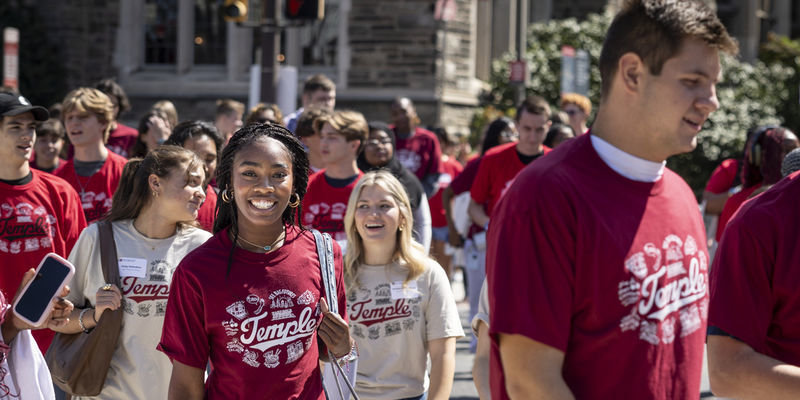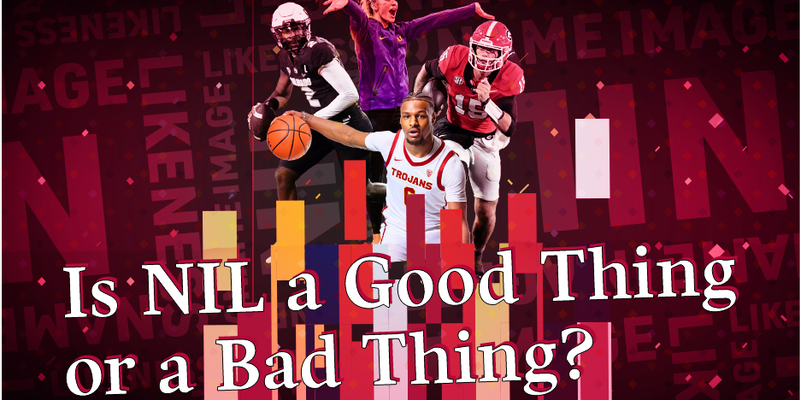The NFL is bullish on international expansion, but is it working?
This Friday, the Philadelphia Eagles will play in the NFL’s first game to ever be held in South America when the team heads to Brazil. This comes after the league continues to hold several games in Europe annually. Temple University sport business faculty member Rick Ridall discusses why the NFL is so intent on global expansion.

This Friday, the Philadelphia Eagles will face off against the Green Bay Packers in what will be the first-ever National Football League (NFL) game to be held in South America. The contest, which will be held in Brazil, illustrates the continued growth of the NFL International Series, a series of regular season NFL games that are played outside the United States.
Just last season, the NFL held three games in London, and two more in Frankfurt, Germany. This year, in addition to the Brazil game, the NFL will hold three more contests in London and another in Munich, Germany.
So, what’s the end game for the NFL? Is this just a cash grab or is the NFL actively exploring placing franchises in international locations? Beyond that, what do American fans think of this all?
Rick Ridall is a professor of instruction and the executive director of industry and alumni relations in Temple University’s School of Sport, Tourism and Hospitality Management. Ridall is an expert in sports sales, marketing, event management and new business development, and he began his professional career as an employee with the Eagles.
Temple Now caught up with Ridall to gain his thoughts on whether there is a method to the madness when it comes to the NFL’s continued international expansion.
Temple Now: The first time the NFL played an international game was just 20 years ago when the Arizona Cardinals beat the San Francisco 49ers 31-14 at Estadio Azteca in Mexico City, so this is still a relatively new thing. Broadly speaking, what is the driver behind the NFL’s continued international expansion?
Rick Ridall: The NFL and its shield is a brand that is so powerful domestically, and it generates so much revenue and interest across the board. When you think of ticket sales, sponsorships, viewership, merchandise, fantasy sports and now legalized gambling, there are many different touch points, and that is why they continue to be the highest revenue generator of any of our professional leagues. They always try new things, and what we have seen over the last few years is more consistent with how they engage international markets, particularly in Europe. They are seeing more fan engagement from these markets, so they are now catering to that. Because each team only has 17 games and only plays once a week, they have many opportunities and can be creative about where they put these games without dramatically affecting the teams that are participating. Now, they are seeing new fan bases, new revenue streams and new opportunities, and historically, when this league sees opportunities, they just go for it. Now, with the Brazil game, we will see what happens on Friday, right? There is some concern and red flags around that game, but overall, their strategy has been working.
TN: The NFL has had a lot of success with its International Series, particularly its games held in London. They have never been to Brazil, however, and as you alluded to, news media has shared some concerns ahead of that contest. How has the Brazil contest been received?
TN: So, what is their endgame in hosting these international contests? Is there talk about NFL expansion?
Ridall: I think it’s open ended. They will certainly continue to play these international games and explore new markets. Next year, they have one in Madrid. But I also would not rule out expansion. That is one of the things that I’m very intrigued by. I have done some research on this, and if they are going to expand, it would make the most sense to have four teams in one division that is based in Europe. You could have teams in Paris, London, Madrid and Munich, and they could all play each other and then come to the United States five or six times a season, which is realistic.
In the meantime, what we are seeing is that there is an international appetite for the NFL. Cities and international fanbases are going nuts for the game. For instance, that Mexico City game that you referenced from 2005 was, at the time, the highest attended NFL game in history. So the strategy is one where they are just not going to settle. They are going to continue to do these things, and then, if it does make sense, they are going to do an expansion, and that could be in Mexico, Europe or both. It might seem crazy, but if you would have told me 20 years ago that they would have 17 regular season games and games on Thursday night through Monday night, and all this and that, I would not have believed you. But this is just how they operate. They use the market and live environments as their beta testing, and they’ve had a lot of success with it. So, I don’t think there is an end game other than more is better, and they are going to continue to push the envelope until they hit a wall.
TN: Final question. Will we see an internationally based NFL team? And if yes, when?
Ridall: Yes, we will. My best guess is 2030. Now, remember, the Buffalo Bills could technically relocate to Toronto, and that would give us an international team, but I really think a team and division in Europe will eventually make a lot of sense from the NFL’s perspective.


